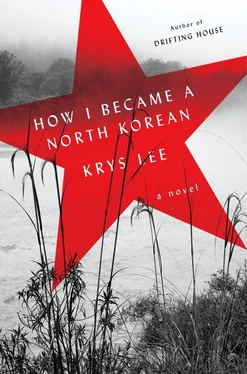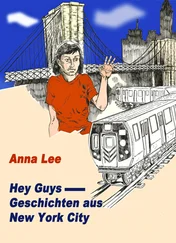“Call me shameless.”
I hide my irritation even though my mom has broken promise number one: to leave the deacon at home. I’ve gotten better at forgiving.
“I’ll go anywhere if someone else is paying for the plane ticket.”
She comes up behind him in a hunter-green down coat and coordinating red scarf. A veritable Christmas tree, though my boyfriend would say that I don’t fare much better in the fashion department.
“My Dumbo!” She looks elated and cautious all at once.
“Mom!”
We suffocate each other with hugs as if she hadn’t just visited me in Boston four months ago, and in her arms I immediately feel more at home. She squeezes my cheeks with both hands. “I’m so, so happy you’re here.”
“Mom! I’m a little too old for public demonstrations.”
“You’re my saekki .” Her smile is framed by crevices that seem to deepen by the month. “You’re never too old.”
She aims up to kiss me, but I dodge it by stretching to my fullest height.
“How was the flight?”
“The way it always is. Uncomfortable.”
She tugs at my ear. “Did you read many books?”
I take her hands in mine and feel how dry and flaky they’ve become after the long Chinese winter. “I thought you were coming alone,” I say, my voice lowered.
She pulls away. “I–I need the bathroom before we go.” She dashes off, leaving me alone with the deacon.
I scoot my suitcase out of the way of passing travelers and plant myself on one of the plastic chairs. All of the airport’s surfaces are coated in early spring’s film of yellow dust. The deacon trails after me.
When he leans down to make eye contact, I fiddle with my luggage tags.
“You’re not going to avoid me forever, are you? I’m part of your family now.”
“I already have a family.”
“Don’t blame your eomma . She wanted me to stay at home.”
Home.
“I imagine you don’t want to see me.”
I finally look up. “You are responsible for my parents’ divorce.”
“I had to come out since you refused to see me. I wanted to… apologize.”
I clap for him. “And now you’ve apologized.”
“I’m a hypocrite, Daehan. I’m a sinner. We all are.”
“I’ve figured out that much myself by now.”
“This isn’t easy for an adult to do — apologizing.”
“What’s your apology going to do — repair my parents’ marriage? It doesn’t change anything — it only makes you feel better.”
He draws back as if I’d punched him. “Your eomma tells me you stopped going to church. It’s my duty — my responsibility — to say this one thing: Don’t rebel against your faith because you’ve lost faith in other people. I’m asking you, for the sake of your soul, don’t confuse God with man.”
Waves of fatigue wash over me. I think he’s wrong about rebellion. Every day I mourn the loss of God, which also equaled the loss of my childhood. My faith was the greatest, most reassuring map of my life. But my doubts certainly aren’t his business, so I say, not entirely untruthfully, “I’ve been on two flights for a total of over sixteen hours. I’m trying my very best to be civil.”
I watch the rusty wheels of suitcases scrape past us and, in the silence, wait.
• • •
After saying our good-byes to the deacon, my mom and I drive through the smog and traffic that personify the new China, then along the border. She switches on an air freshener that smells of dried apples, and when she pulls off her sun hat before we leave the motel where we spent the night, the new sprays of gray hair shine in the sun. She notices me looking and says she’ll dye it as soon as I leave for the States. Even her last name has changed.
As she drives now, she puckers her lips, soundlessly forming words and sentences the way she does when she’s trying to find the right words. Finally she says, “I know you really wanted to go back to that house, but returning there doesn’t seem such a good idea. Why not just visit the mountains and my hometown?”
“I need to face it.”
Six years have passed, but in some ways time has stayed still for me. I know where I have to go.
“You’re certain about this.”
I nod, afraid my voice will crack if I say anything.
“A lot has changed, hasn’t it?” She charges ahead. “There’s a surplus of missionaries here now looking for Han people to convert. I’ve decided to return to California once the year’s out, since I’m no longer needed here.”
“With that man.”
“Dumbo, he’s my husband.”
I tell her to veer right out of the city on the next road, which she does.
She says, “You’re still not going to church.”
“No, Mom.”
“And you won’t reconsider.”
I give myself a moment to think. “It would be dishonest.”
“So… when do I get to meet this girlfriend of yours? Maybe the next time I’m in America?”
“We’ve dated for less than two months. It’s very present tense — it’s not like we’re getting married.”
“Will you at least be on the same coast after you graduate? She sounds so nice…”
Meaning, she sounds like good wife material. I refrain from telling my mom that my girlfriend isn’t exactly a girl. Or telling her that I don’t know where I’ll end up or what I want to become, or whether I’m made for a traditional wife-and-two-kids kind of life or something radically different. Leaving the church was bad enough and I don’t have the courage yet.
“I haven’t thought that far,” I say. “You know I applied everywhere — law school, master’s in sociology, management. Whoever gives me money.”
“You still don’t know what you want to do, do you?” Her fingers tighten around the wheel.
I shrug. “I’m okay with not knowing. It’s not like you can perfectly navigate your way through life.”
Everything is smaller at the border than I remembered it. The houses, the trees, the river itself. March isn’t as cold as the March in my memory. The Tumen River is narrower. More puddles of water in the dry season than a river. The long stretch of border looks mainly peaceful despite the new surveillance cameras, where there weren’t cameras before, and now much of the river is lined with barbed wire like cake icing and the new concrete holding centers that imprison North Koreans before they’re sent back home to certain danger. In any case, it’s hard to believe this river was the site of the claustrophobia, the fear, and the violence that the border has come to represent to me. We drive by the river-hugging small huts that my mom says are mainly owned by crooks trafficking North Korean women. The guard posts have now given way to camouflaged dugouts. The men still fish in the shallow water, a woman is doing laundry, and kids are skipping stones during what should be school hours.
I was there. I was a witness.
“But, Danny, you’re okay, aren’t you?”
Smugglers trundle their goods to one another across the river, using a rope and pulley system. She knows almost nothing about what happened to me in China no matter how she tries to wrangle it out of me; all she knows of that time is that I lived in a cave dugout with North Koreans, who later, in groups of twos or threes, were met at locations assigned to them at the last minute by human smugglers, arrangements she had made with great difficulty, jeopardizing her evangelical work with the Han Chinese. She knows that I’d witnessed the violence done to Missionary Kwon but didn’t call for medical help until my friends were out of his reach.
I keep my eyes on the divided country across the river. “Mom, do you think the North and the South will ever be unified?”
“Your friends will meet their families again someday. If it’s God’s will.”
Читать дальше












